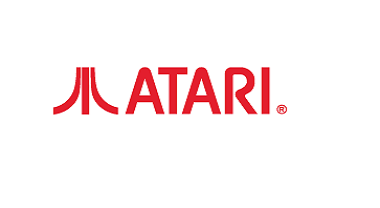The Art of Copyright and Trademark Infringement
Atari Interactive, Inc. (“Atari”) – Copyright and Trademark Infringement
Atari Interactive, Inc. (“Atari”), a well-known video game company was established in the 1900s. In the initial years of 1970s, it created a series of video games called – the Pong, Asteroids and Breakout. Over the years Atari built a more-than-satisfactory fan base while these games still continued to have a “retro” appeal to users. In order to capitalize on the goodwill created by it over several decades, it makes apparel, toys, drinkware, games, stickers, etc for its fans. Redbubble, Inc. (“Redbubble”) is an online marketplace which is also described by it as “personalized on-demand retail”. In this marketplace, several artists can upload their designs and creative work which then are printed on different products. These designs are printed on products like – mugs, t-shirts, bags, stickers, stationery, housewares and wall art. In this type of retail, the customers choose and customize the goods according to their preferences and liking after-which, the product is manufactured and sold. The U.S. District Court of the Northern District of California (“District Court”) addressed the issue of liability of an online retailer for copyright and trademark infringement done because of the user submissions, on January 28, 2021. As it turned out, only some of the claims made by the Atari Interactive, Inc. (“Plaintiff”) against Redbubble, Inc. (“Defendants”) could sustain and others couldn’t. (Atari Interactive, Inc, v. Redbubble, Inc., 515 F. Supp. 3d 1089; Case No. 18-cv-03451-JST).
Artists’ perspective: An artist can upload his/her art on the online marketplace created by Redbubble. Thereafter, the artist has to choose the type(s) of products from the predetermined list of products of Redbubble, on which the artist wants their art to be printed. Redbubble decides the base price of the product and the artist selects the creator’s margin.
Customers’ perspective: any person who wants to get a customized product can choose which product is best for them by projecting the art on the stock phots of the product which will give them a preview of the physical product. Along with the preview, various details of the products are provided on website, which are – name of the artist, size, description of the artist and the product, etc. Once the customer purchases the product, Redbubble processes the payment and sends confirmation to the customer. Redbubble also handles the delivery and assists when any damage or loss occurs to the customer.
Atari contended that Redbubble allegedly advertised and sold products which were trademarked and copyrighted under Atari’s name. As a result, both parties resorted to summary judgement.
One of the major issues before the court was that whether the trademark infringement by Redbubble was direct or indirect. Firstly, the District Court scraped the decision of Redbubble being just a retailer and not a manufacturer or seller or both. It disagreed with the previously decided case of Ohio State University v. Redbubble, Inc. Secondly, the District Court opined that Redbubble acted as artist’s agent and aided in selling the products physically. This is because, customers entered into a contract for sale with Redbubble and not the artist.
Having found that direct trademark infringement does not exist, Atari argued on some facts and produced evidences which showed that Redbubble had indirectly infringed trademark. The jury and the District Court agreed with the fact that the defendant was vicariously liable. The defendant and the artist(s), in this case had an “apparent and actual partnership” existed between Redbubble and the artist/offender who had allegedly infringed the trademark owned by Atari. Producing circumstantial evidence of control held by Redbubble of managing the appearance of physical products was held as a determining factor of the defendants being vicariously liable.
Out of the three elements of establishing direct copyright infringement, Atari could establish only the first two elements, which were, (1) owning the allegedly infringing material and (2) there is a clear demonstration of the infringers violating at least one exclusive right granted to the copyright holders under 17 U.S.C. § 106. The fact remained that Redbubble did not have an option with itself to the kind of material uploaded, transmitted and stored. Redbubble took shelter under DMCA safe harbour stated under 17 U.S.C. section 512(c). However, the District Court disagreed with Redbubble on this point. Because, in order to qualify for safe harbour, the service provider needs to set a threshold and show that the infringing content was being uploaded on the direction of the user. On the other hand, Redbubble proactively participated in editing and modifying the files being uploaded and used by the artists on its website. Therefore, Redbubble held more control as compared to the users/ artists themselves.
As the conclusion, the court held that Atari’s claim of copyright infringement will be able to succeed in claiming for copyright infringement, even in an indirect way. This is because that claim should have the support of the following things as evidence
- The accused should have the knowledge of the claimant’s infringement and
- Either the accused himself contributes towards the infringement significantly or else he induces the infringement in some other way.
In the present case, Atari failed to fulfil the first condition. Atari was unable to prove that Redbubble was aware about the infringement and even after that, it didn’t act on it. The court also observed that Redbubble didn’t knew about any of the infringing content.
The sort of liability which Atari was seeking to impose on Redbubble needs Atari to prove that Redbubble had the right and ability to supervise and scan the infringing content/conduct. On this point, Redbubble contended that it did not have the ability to do so and it also sought co-operation from the person who owns and uploads the content to identify infringing content. To this, the court also concurred and held that – finding infringing content from Redbubble’s side would be like “searching for a needle in a haystack (where Redbubble lacks knowledge of needles’ appearance).”
From this judgment, we understand the liability and laws related to online platforms and retailers. We also understand that in some cases, where the platforms have adopted new and diverse models, the job of the creators is doubled in the sense that these platforms are not liable for copyright and trademark infringement, owing to the amount of data on their websites. These platforms give general disclaimers about copyright, trademark and their infringement, but the rest is up to the creators themselves. From this case, we also understand that the lines between direct and indirect infringement can also blur, because unlike the present case, there may be instances wherein the platforms take advantage and escape liability through such means.
Author: Saransh Chaturvedi (Advocate, LLM (IIT Kharagpur) – an associate at Khurana & Khurana, Advocates and IP Attorney, in case of any queries please write back us via email at support@ipandlegalfilings.com or contact us at IP And Legal Filings.




